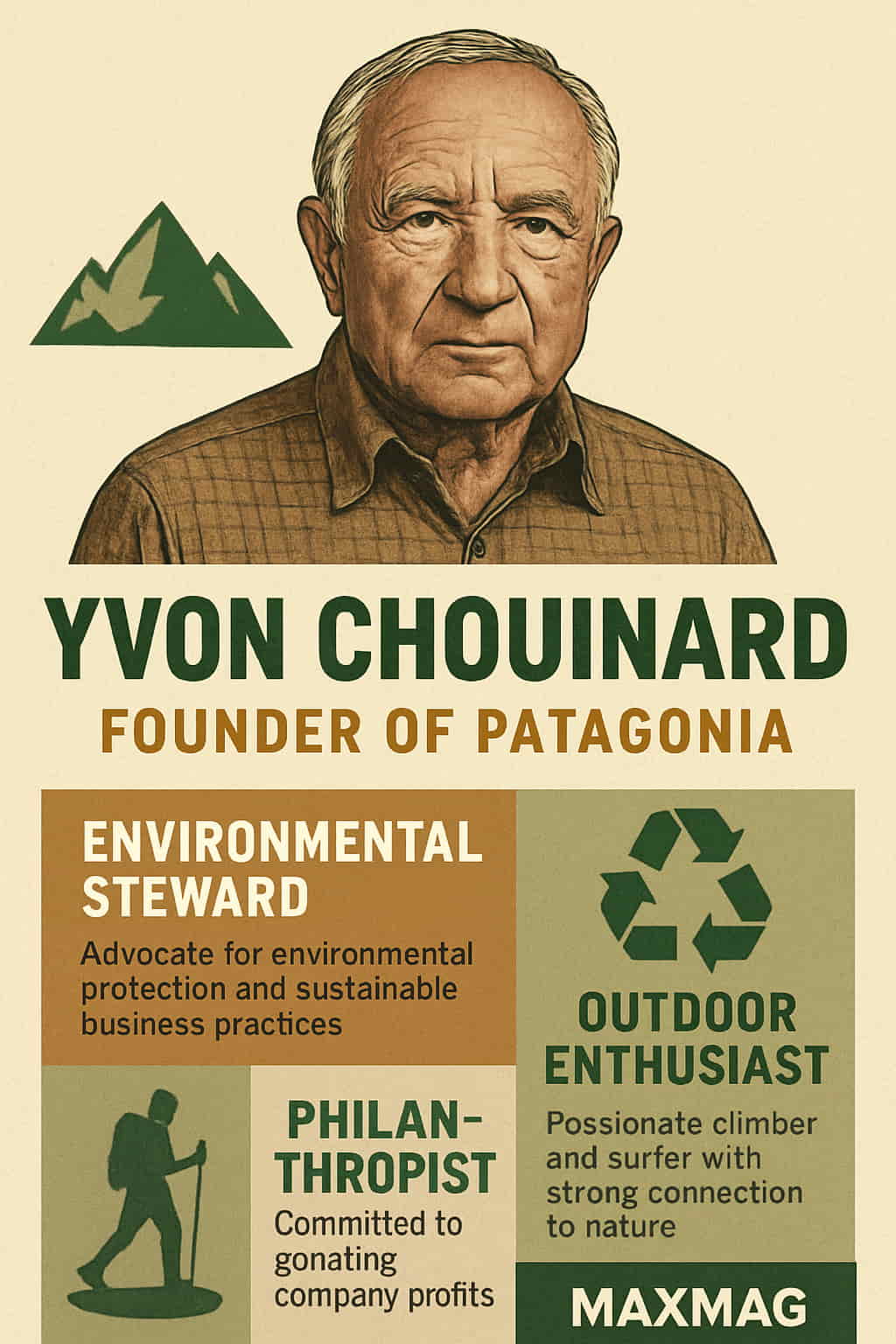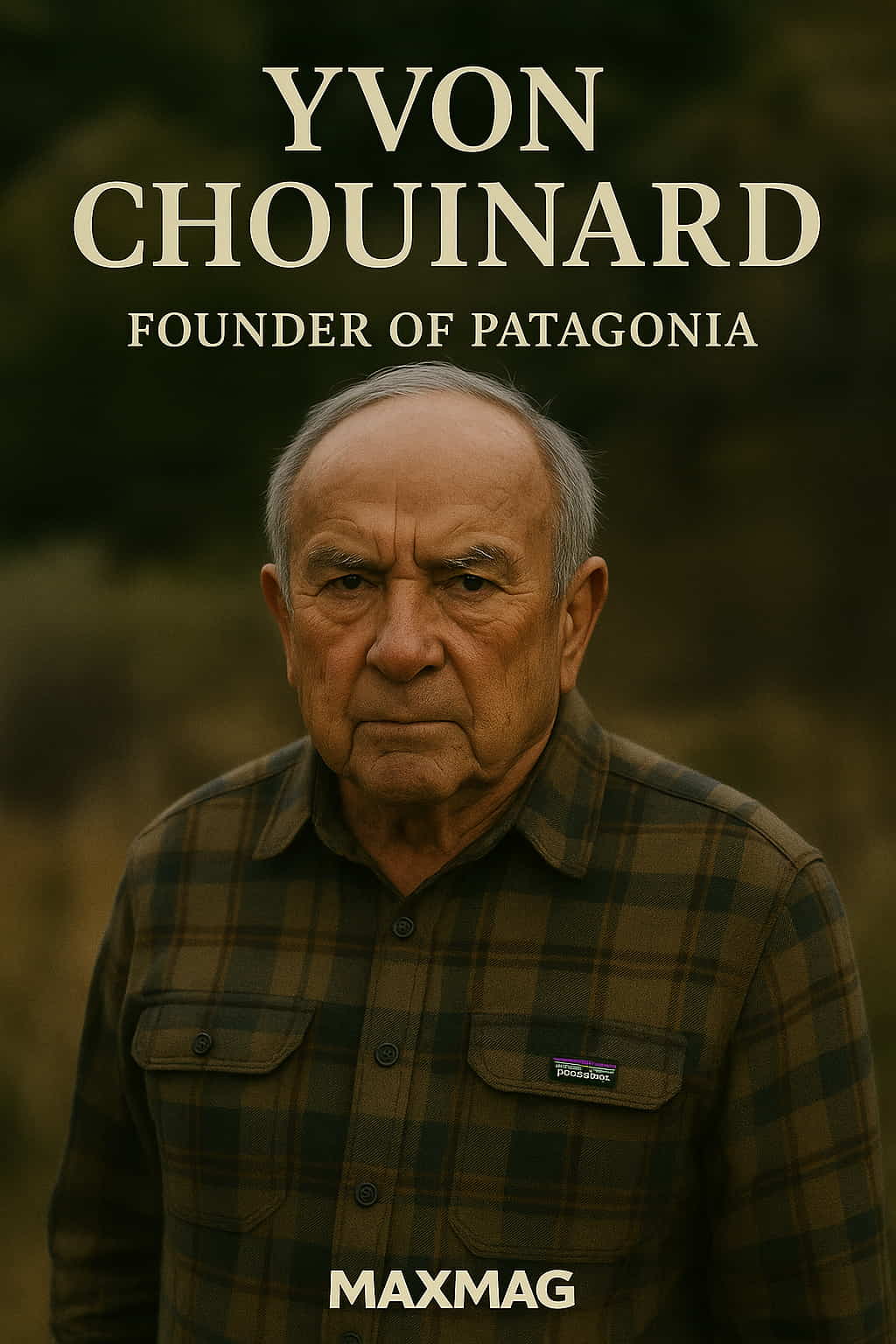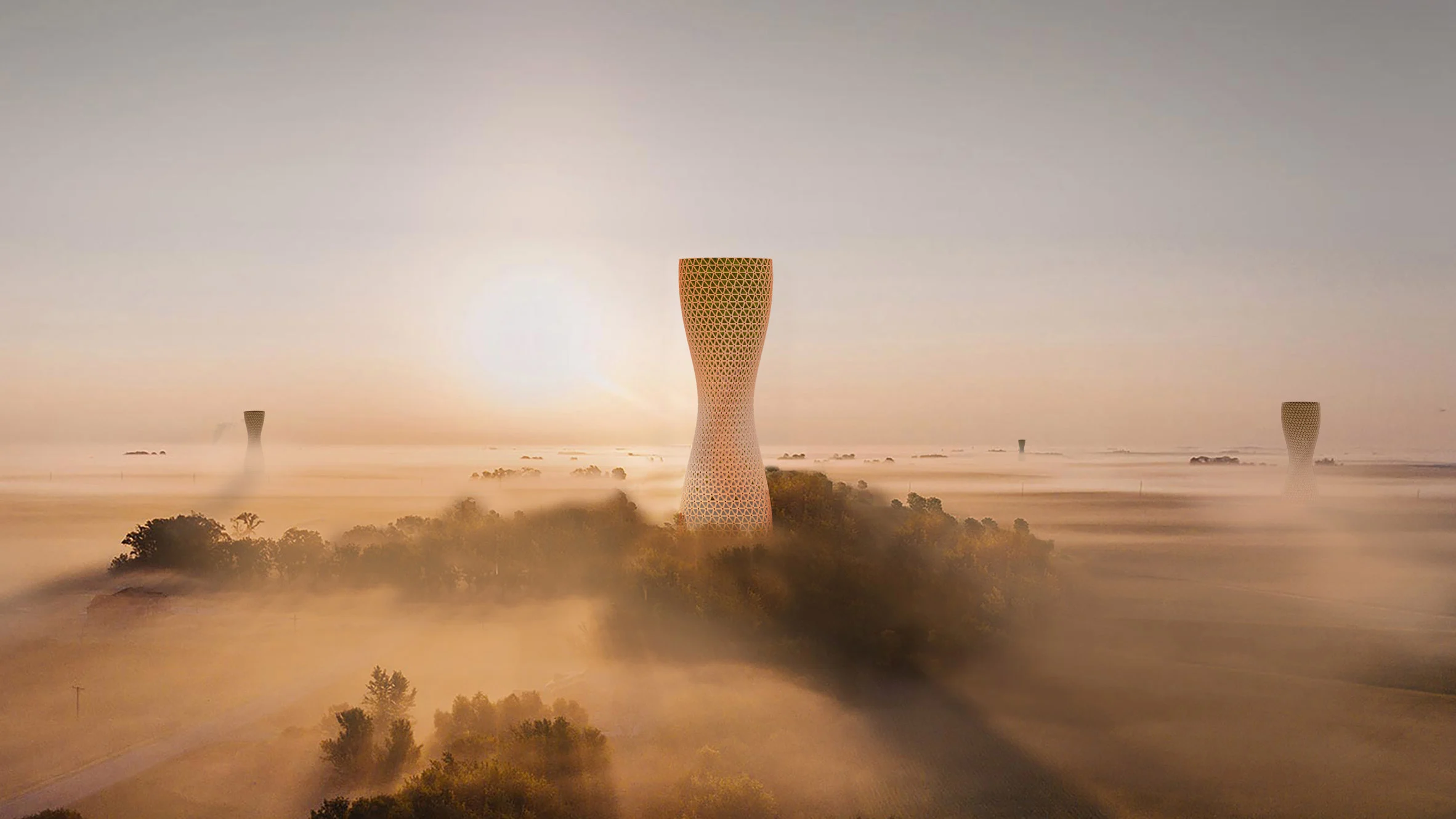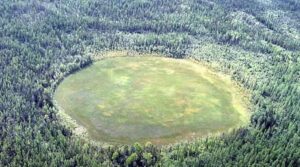
Few figures in modern environmentalism have made as profound and unconventional a contribution as Yvon Chouinard. Known to many as the founder of Patagonia, Chouinard’s life reflects more than just entrepreneurial success—it encapsulates a radical rethinking of capitalism itself. In an age when the planet faces unprecedented ecological challenges, Chouinard has emerged not only as a pioneer in outdoor gear but as a moral compass for what modern business should become. At the core of this transformation is the Yvon Chouinard climate initiative, a groundbreaking model that rewrites the rules of corporate responsibility.
The Humble Beginnings of a Reluctant Businessman
Yvon Chouinard was never drawn to profit or corporate ambition. Born in 1938 to a French-Canadian family in Maine, his early life was shaped by a love for the outdoors. When his family moved to California, he discovered climbing—and it quickly consumed his world. By the 1950s and 60s, he was scaling Yosemite’s El Capitan and Half Dome with homemade gear, hand-forged in a backyard blacksmith setup. This gear was the seed that eventually grew into Chouinard Equipment and later, Patagonia.
But Chouinard never identified as a businessman. He was a climber, a surfer, and a naturalist who loathed waste and saw environmental degradation up close. What drove him wasn’t money, but a desire to protect the very wilderness that inspired him.
The Birth of Patagonia and the Roots of Environmental Advocacy
Patagonia wasn’t born in a boardroom; it was born on granite walls. In 1973, Yvon Chouinard founded the company with the intention of producing durable, sustainable outdoor gear. From the start, Patagonia operated differently: materials were ethically sourced, workers were fairly treated, and products were built to last. The company even ran ads urging customers not to buy new jackets unless they needed them—a radical stance in the age of consumerism.
Patagonia’s environmental consciousness grew in tandem with its popularity. By the 1980s, the company was donating 10% of profits to grassroots environmental causes. This eventually formalized into the “1% for the Planet” pledge, where 1% of sales—not just profits—went to environmental organizations.
But this was just the beginning. The groundwork was being laid for what would one day become the Yvon Chouinard climate initiative—a move so bold it would shake the very foundations of modern capitalism.
What Is the Yvon Chouinard Climate Initiative?
In September 2022, Chouinard made global headlines by announcing he was “giving away” Patagonia—not to his children or to private investors, but to the planet.
Here’s how it works:
-
2% of Patagonia’s stock was placed into a trust (the Patagonia Purpose Trust) that ensures the company stays true to its mission and values.
-
98% was donated to the Holdfast Collective, a nonprofit tasked with fighting climate change and protecting undeveloped land across the globe.
This wasn’t a symbolic gesture. The company’s estimated annual profits, over $100 million, would now be used exclusively to fund environmental causes. The message was clear: Earth is now Patagonia’s only shareholder. This structure is the beating heart of the Yvon Chouinard climate initiative.
“Instead of going public, you could say we’re going purpose,” Chouinard wrote in an open letter on Patagonia’s website. “Truth be told, there were no good options available. So, we created our own.”
His decision was celebrated by activists, economists, and ethicists alike—and not without reason. By transferring ownership into hands that serve the Earth, Chouinard had created a new model for wealth and business: one where success is measured not in returns, but in regeneration.

Why This Move Matters—Far Beyond Patagonia
The Yvon Chouinard climate initiative is a rare case where personal values have scaled to global impact. It demonstrates that capitalism, when radically restructured, can support planetary well-being.
Unlike companies that “go green” as a PR strategy, Patagonia’s entire existence now financially depends on the health of the planet. There’s no reverting to quarterly profits or market-driven decisions. The purpose is locked in—legally, structurally, and philosophically.
What makes this model powerful is its replicability. Any company—whether clothing, tech, food, or finance—could adopt a similar structure. The World Economic Forum called it “a wake-up call for traditional capitalism” (source).
Imagine if Amazon, Apple, or Coca-Cola pledged even a fraction of their profits toward reforestation, water access, or climate research. Chouinard’s initiative shows it’s not only possible—it’s profitable, ethical, and deeply necessary.
Embedding Climate in Every Layer of the Supply Chain
Long before Patagonia restructured ownership, it was leading the way in sustainable operations:
-
Materials: It shifted from conventional to organic cotton in the 1990s, despite higher costs.
-
Recycling: It launched the “Worn Wear” program to repair and resell used gear, minimizing waste.
-
Transparency: The Footprint Chronicles offered an honest look into the company’s environmental impact.
These weren’t just token gestures. They were the early seeds of the Yvon Chouinard climate initiative, cultivating a culture where environmental responsibility wasn’t an add-on—it was the foundation.
Holdfast Collective: Where the Money Goes
The Holdfast Collective—now the primary shareholder of Patagonia—has a single mission: saving the planet. Its focus areas include:
-
Combatting climate change through policy advocacy and research
-
Protecting biodiversity and ecosystems
-
Funding grassroots organizations in vulnerable communities
-
Supporting regenerative agriculture and land restoration
Unlike traditional charities, Holdfast is not limited by tax-deductible restrictions. This means it can fund political campaigns, climate lobbying, and hard-hitting activism—areas most corporate CSR programs avoid.
Yvon’s Larger Philosophy: Nature Is Not a Resource, It’s a Partner
A defining aspect of Chouinard’s worldview is that nature is not an adversary to be conquered, nor a commodity to be consumed. It is a living system we’re part of—and responsible for.
This animistic view of the Earth deeply informs the Yvon Chouinard climate initiative. For Chouinard, protecting the environment isn’t philanthropy—it’s survival. His writings and interviews often reference Native American traditions and Buddhist minimalism, revealing a mindset anchored in respect for all life.
“The more you know, the less you need,” he often says—a mantra that applies as much to business as it does to backpacking.
Global Influence: Inspiring a New Generation
The ripple effect of Chouinard’s move is already visible:
-
B Corps like Allbirds and Cotopaxi have stepped up their sustainability efforts.
-
Outdoor brands are collaborating on shared circular economy models.
-
MBA programs at Harvard and Stanford now use Patagonia as a business ethics case study.
Young entrepreneurs, especially in the climate-tech sector, see the Yvon Chouinard climate initiative as proof that purpose and profit can coexist. In a landscape often filled with greenwashing, Chouinard’s authenticity cuts through the noise.
Frequently Asked Questions (FAQ)
Q1: Who controls Patagonia now?
The Patagonia Purpose Trust holds 2% voting stock to protect the company’s values, while the Holdfast Collective owns 98% and uses profits for environmental causes.
Q2: How does the Holdfast Collective spend Patagonia’s profits?
Funds go toward fighting climate change, protecting biodiversity, and supporting environmental justice campaigns—especially at the grassroots level.
Q3: Is Patagonia still a for-profit company?
Yes, it remains fully operational, selling products and earning revenue—but all profits now go to the Holdfast Collective instead of private shareholders.
Q4: Can other companies replicate this model?
Absolutely. This trust/nonprofit structure can be adopted by any business committed to long-term ecological and social goals.
Q5: Does this impact product pricing or employee wages?
No. Patagonia continues to price products competitively and pays well above minimum wage standards, often setting benchmarks for ethical employment in retail.
Q6: Why is the Yvon Chouinard climate initiative seen as historic?
It legally redefines business success, placing the Earth—not shareholders—at the center of its financial model. That has never happened on this scale before.







